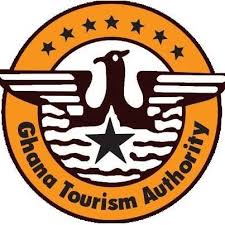A journey through Ghana’s slave coast: cape coast and Elmina
Grassroot Tours, a premier travel agency based in Ghana, offers an enriching journey through the vibrant cities of West Africa, focusing on Accra, Lome, and Benin. This blog post explores the rich tapestry of culture, history, and geography in these cities. West Africa is celebrated for its vibrant culture and historical depth, making it a captivating destination for travelers. Accra, the bustling capital of Ghana, combines historical significance with modern vibrancy, showcasing landmarks like the Kwame Nkrumah Mausoleum and vibrant local markets. Lome, the charming capital of Togo, offers a picturesque coastline and a glimpse into the nation’s rich cultural tapestry through its extensive markets. Benin, known for its profound historical roots, provides a deep dive into the ancient kingdoms and the unique Vodun religion. The aim of this blog post is to guide readers through these cities’ cultural richness and geographical diversity, offering insights that only a seasoned tour operator like Grassroot Tours can provide. This journey promises not only a deeper understanding of each city’s unique identity but also a connection to their historical and contemporary significance
Accra: The Vibrant Capital of Ghana
Accra, the capital of Ghana, pulsates with a rich historical heritage and vibrant cultural expressions. It serves as a gateway not just to Ghana but to West Africa due to its strategic geographic and economic position.
- Historical Background and Significance:
- Founded in the 17th century as a port city, Accra became the capital of the British Gold Coast in 1877 and later the capital of independent Ghana in 1957. Its history is a tapestry of colonial struggle, trade, and the fight for independence, making it a pivotal site for Ghanaian national pride.
- Key Attractions:
- Kwame Nkrumah Mausoleum: Dedicated to Ghana’s first President, this site also serves as a museum chronicling his life and the struggle for Ghanaian independence.
- Independence Arch: Part of the Independence Square, this monumental arch is a symbol of Ghana’s freedom and hosts major national public gatherings and celebrations.
- Local Markets: Markets like Makola offer a sensory overload of colors, aromas, and the hustle of daily Ghanaian life, perfect for those looking to dive deep into local commerce and crafts.
- Cultural Experiences:
- Accra is a hub for Ghanaian music, arts, and cuisine. From the traditional sounds of Highlife music to contemporary Afrobeats, the city’s musical landscape is dynamic and influential.
- Art galleries such as the Artists Alliance Gallery showcase works from top Ghanaian artists, providing insights into the vibrant art scene.
- Culinary explorers can savor dishes like jollof rice and kelewele at local eateries, offering a taste of the region’s rich flavors and culinary heritage.
Accra is not just a city but an experience, offering visitors a profound understanding of Ghana’s past and present through its monuments, markets, and cultural vibrancy.
Lome: The Coastal Gem of Togo
Lome, the capital city of Togo, stands out with its picturesque coastal setting and vibrant cultural landscape, offering visitors a unique blend of natural beauty and cultural richness.
- Introduction to Lome’s Unique Characteristics:
- Nestled on the Gulf of Guinea, Lome is known for its beautiful boulevards lined with palm trees and its role as Togo’s administrative and industrial center. The city’s port significantly contributes to its economy, making it a crucial hub for trade in West Africa.
- Notable Sites:
- Lome Grand Market: A bustling epicenter of commerce, this market offers everything from traditional Togolese textiles to local spices, providing a real taste of daily life in Togo.
- Togo National Museum: Located in the heart of the city, the museum houses an impressive collection of cultural artifacts that tell the story of Togo’s history and heritage.
- Beaches: Lome’s beaches are idyllic spots for relaxation and recreation, with their soft sands and views of the Atlantic Ocean, making them perfect for a day out.
- Insights into Togolese Culture and Traditions:
- Togolese culture is a rich tapestry of traditions, with a strong emphasis on music and dance, particularly the traditional Ewe and Kabye dances.
- Local cuisine reflects the agricultural diversity of the region, with dishes based on corn, cassava, and yams, often accompanied by spicy sauces and grilled meat.
Lome offers a compelling blend of traditional culture and modern vibrancy, making it an essential destination for anyone visiting West Africa. Its markets, museums, and beaches provide a comprehensive look at the heart and soul of Togo.
Benin: A Land of Rich Heritage
Benin, renowned for its profound historical significance and rich cultural heritage, offers a deep dive into the historical and spiritual landscapes that shape this fascinating country.
- Overview of Benin’s Historical Context:
- Benin’s history is marked by powerful kingdoms such as the Kingdom of Dahomey, known for its formidable warriors and significant influence in the region. The country’s past is also deeply intertwined with the transatlantic slave trade, making it a critical site of memory and heritage.
- Major Attractions:
- Ouidah: A city with a poignant history, Ouidah is infamous for its role in the slave trade and is home to the haunting Route des Esclaves, which leads to the Door of No Return, a memorial to the millions who were forced from their homeland.
- Royal Palaces of Abomey: A UNESCO World Heritage site, these palaces are a testament to the might of the Dahomey kingdom, with elaborate bas-reliefs narrating the history of the Dahomey rulers.
- Ganvie: Known as the “Venice of Africa,” Ganvie is a lake village built on stilts, offering a unique glimpse into the traditional ways of life that have persisted over centuries.
- Exploration of Vodun Culture and Its Significance:
- Vodun, or Voodoo, a religion deeply rooted in the spiritual and cultural life of Benin, plays a crucial role in daily life and cultural identity. Its practices and rituals, often misunderstood, are integral to understanding the spiritual depth and resilience of the Beninese people.
Benin’s rich tapestry of history and culture, combined with its major attractions and the enduring legacy of Vodun, makes it a captivating destination for those seeking to experience the depth of African heritage and spirituality.
Transportation Options Between Cities in West Africa
Navigating the diverse landscapes of West Africa from city to city offers several reliable transportation options, tailored to suit different preferences and budgets.
- Overview of Travel Methods:
- Buses: Widely available and economical, buses connect major cities across West Africa, offering both standard and luxury options for longer journeys.
- Taxis: Ideal for shorter distances or within city limits, taxis can be hailed on the streets or booked via local services. They offer a more private and flexible travel option.
- Flights: For quick transfers between countries or to avoid long road journeys, several regional airlines provide domestic and international flights linking major cities like Accra, Lome, and Cotonou.
- Tips for Navigating Transportation in West Africa:
- Plan Ahead: Especially for bus and flight routes, booking in advance can secure better rates and guaranteed seats.
- Stay Informed: Check local travel advisories and updates, as transportation schedules can change due to various factors like weather or local events.
- Local Help: Consulting with locals or travel guides from services like Grassroot Tours can provide insights and recommendations for the best travel methods according to your itinerary.
- Recommendations for Travel Itineraries:
- For a comprehensive experience, combine different modes of transport. Start with flights into major hubs and use buses for city-to-city transfers to soak in the scenic views and local culture. Taxis or rented cars can be used for more in-depth exploration of city interiors and remote areas.
These options and tips ensure a smoother travel experience, allowing visitors to fully enjoy the rich tapestry of cultures and landscapes across West Africa.
Culinary Delights of West Africa
West Africa’s culinary scene is as diverse as its cultures, offering a palette of flavors and dishes that reflect the history and geography of the region.
- Introduction to the Diverse Cuisines of Ghana, Togo, and Benin:
- The cuisines of Ghana, Togo, and Benin feature a robust use of grains, tubers, fish, and tropical fruits and vegetables. Dishes are often flavored with a rich palette of herbs and spices, making each meal an adventure in taste.
- Signature Dishes to Try in Each City:
- Accra, Ghana: Indulge in “Jollof Rice,” a popular West African dish of spiced rice cooked in tomato sauce, often served with chicken or fish.
- Lome, Togo: Savor “Yassa,” a tangy chicken dish marinated with copious amounts of onion and lemon, reflecting the coastal influence on Togolese cuisine.
- Cotonou, Benin: Experience “Akpan,” a savory cornmeal cake that is a staple in Beninese cuisine, typically enjoyed with a spicy vegetable sauce or stew.
- The Role of Food in Cultural Exchange and Social Gatherings:
- Food is central to social life in West Africa, serving as a medium for hospitality and community bonding. Meals are typically communal, reflecting the collective nature of West African societies. Festivals and family gatherings are incomplete without the sharing of a meal, where stories and friendships are forged over shared dishes.
These culinary experiences not only tantalize the taste buds but also open doors to understanding the cultural complexities of West Africa, making food an essential part of the travel experience.
Cultural Festivals and Events
West Africa is rich in cultural festivals and events that not only entertain but also deeply reflect the historical and spiritual traditions of the region.
- Overview of Significant Festivals in Accra, Lome, and Benin:
- Accra, Ghana: The “Homowo Festival” is a prominent celebration by the Ga people of Accra, marked by a vibrant parade, traditional music, and the sharing of “Kpokpoi,” a special festival food.
- Lome, Togo: “Fetish Day” is a significant spiritual festival where traditional priests and devotees perform rituals to honor their deities, showcasing Togo’s rich spiritual heritage.
- Cotonou, Benin: The “Voodoo Festival” is perhaps the most famous, attracting thousands of devotees and curious tourists interested in the rituals and celebrations dedicated to Voodoo spirits.
- Importance of These Events in Preserving Cultural Heritage:
- These festivals serve as living museums, preserving ancient rites and traditions that are integral to the cultural identity of each community. They provide a platform for elders to pass on stories, rituals, and practices to younger generations, ensuring their continuation.
- Recommendations for Travelers to Experience Local Festivities:
- Visitors are encouraged to participate respectfully in these events, often guided by local hosts who can provide insight into the significance of the practices observed. Engaging with local tour groups like Grassroot Tours can enhance the experience, providing deeper understanding and access to festivities that might otherwise be difficult to navigate.
These events offer immersive experiences that are as educational as they are enjoyable, allowing travelers to gain a deeper appreciation for the rich cultural tapestry of West Africa.
Safety and Travel Tips
Ensuring safety and good health during travels in West Africa can enhance the overall experience. Here are essential tips to consider:
General Safety Considerations for Travelers in West Africa:
Stay Informed: Keep up-to-date with local news and any travel advisories from your home country regarding the regions you plan to visit.
Secure Valuables: Use hotel safes or keep valuables discreetly tucked away. Avoid displaying expensive items in public.
Local Guidance: Utilize reputable local guides who can provide insights into navigating different areas safely, especially in less touristy locales.
Health Precautions and Necessary Vaccinations:
Consult a Travel Clinic: Visit a travel clinic or your healthcare provider well in advance to get advice tailored to your health needs and the specific areas you’ll be visiting.
Vaccinations: Common recommendations include vaccinations for hepatitis A and B, typhoid, cholera, yellow fever, and routine vaccinations such as influenza and measles.
Malaria Prophylaxis: Consider malaria prophylaxis and carry mosquito repellent and nets, especially if traveling to rural or known high-risk areas.
Practical Tips for a Smooth Travel Experience:
Currency Exchange: Have some local currency for immediate expenses and better rates. Avoid street money changers.
Cultural Sensitivity: Respect local customs and dress codes. Simple actions like asking for permission before taking photos can go a long way.
Language Barriers: Learn a few basic phrases in the local languages or have a translation app handy to facilitate better interaction with locals.
Following these guidelines can help minimize risks and increase the enjoyment of your journey through the rich landscapes and cultures of West Africa.
Sustainable Tourism in West Africa
Sustainable tourism in West Africa focuses on preserving the region’s natural beauty, culture, and communities while ensuring tourism development benefits the local population.
- Importance of Responsible Travel Practices:
- Responsible tourism emphasizes minimizing environmental impact, supporting local communities, and respecting cultural heritage. Travelers should aim to reduce waste, conserve water, and avoid contributing to practices that harm wildlife or local ecosystems. Engaging with local customs and understanding cultural sensitivities further enriches the travel experience.
- Initiatives Promoting Sustainable Tourism in the Region:
- Many West African countries have adopted eco-tourism initiatives that focus on protecting natural areas while offering authentic travel experiences. In Ghana, for example, Mole National Park promotes eco-friendly safaris. Additionally, community-based tourism projects, such as village stays, support rural economies by offering travelers immersive cultural experiences while ensuring income for local people.
- How Travelers Can Contribute to Local Communities:
- Supporting local businesses, artisans, and guides allows travelers to contribute directly to the local economy. Opting for locally owned accommodations, dining at small, local restaurants, and purchasing handmade crafts helps empower communities. Additionally, travelers can volunteer with or donate to local conservation projects or community development programs, leaving a positive and lasting impact on the places they visit.
By making conscious choices, travelers can enjoy the beauty and culture of West Africa while ensuring that these resources are preserved for future generations.




